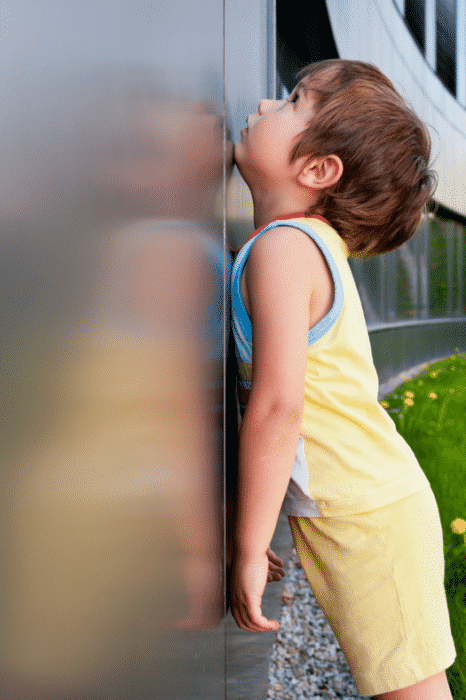I was teaching a Playful Parenting class one night and the topic was how we notice when our children disconnected.
One mom volunteered to come up and demonstrate what her son acts like when he is disconnected. She got to move her body a lot and ‘feel’ what it might feel like for him. We all sat and watched her show us what it looked like, and afterwards I gave her some listening time.
 She then said she had a really different perspective of what it must be like for him when he is in that place.
She then said she had a really different perspective of what it must be like for him when he is in that place.
Change Happens
Next week, she came back with exciting news. She said that after she left the last class she went to pick up her son and immediately recognized that he was in disconnect.
In the past she hadn’t noticed his vacant stare and, instead, had gone about talking with his babysitter for a minute or two before moving to the car. She realized she never really reconnected after time apart. When they tried to leave it always ended up in a big, messy meltdown.
On the night after that class she saw he was in need of connection. This time she decided to engage him in some play before they even thought about leaving.
They played a little chase game first, and one called “Oh where, oh where has my son gone?”
It worked like magic. Not only did they reconnect and have fun, but he left the sitter's happily, and when they got home he had an incredibly easy bedtime.
His father brought him in from the car, laid him down, and he was able to fall asleep in his own bed without getting up once, a behavior that was highly unusual for him.
Why it Works:
Group attention allowed this mom to see her son more clearly and get a better understanding of his experience. As a result she was able to come up with a great spontaneous solution that made the transition from sitter to car much smoother.
Take a moment now to imagine how your child looks when he feels disconnected. Is he distracted? Is she moody or acting out? Is she slumped or floppy? Just taking that moment gives you insights so that next time you see it, you can react. Get playful. Try a chase game, or 1001 kisses, move in close and reconnect.
Read 10 Tips for More Playful Parenting and A Playful Way to Stop Biting and Pinching for more playful solutions to your parenting challenges.
 Kirsten Nottleson is a Certified Hand in Hand Instructor. You can connect with her through her site HandinHandworkshops
Kirsten Nottleson is a Certified Hand in Hand Instructor. You can connect with her through her site HandinHandworkshops
